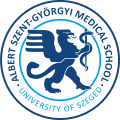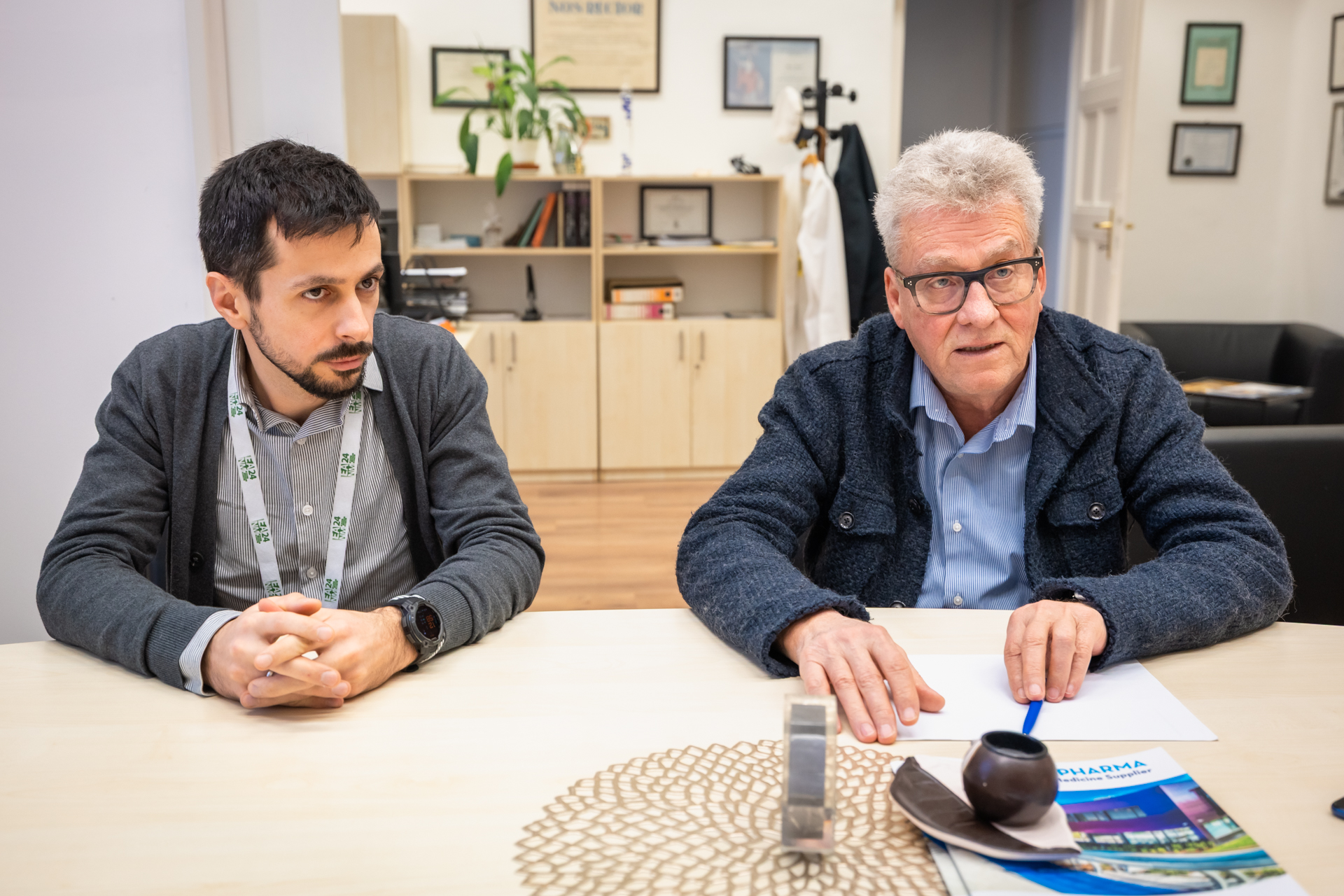University of Szeged
Albert Szent-Györgyi Medical School
Foreign Students' Secretariat
Your Education. Our Mission.

Dr. Endre Varga has been granted the Pro Sanitate Award
At the end of last year, Dr. Endre Varga received the Pro Sanitate Award, a Hungarian governmental award that recognises outstanding professional performance in the field of health care.
The former head of the Department of Traumatology in Szeged is a renowned professor in many parts of the world, and he is credited with several innovations in the training of medical specialists in Hungary. He still performs surgeries, but also finds the time to go hiking or study viticulture
Endre Varga could have become an engineer or a sculptor as well, as he was fascinated by these fields when he was young, but he ended up taking up a different career that also required advanced manual dexterity. He has never regretted his decision, and his outstanding professional performance has recently been acknowledged with the Pro Sanitate Award. He considers the recognition more than just a medal: it is feedback from the university that nominated him for the award that he is doing his job well
Selfless assistance
Endre Varga has chosen one of the most demanding of all medical professions, a field that he can still speak of with love and enthusiasm decades later.
’Traumatology is a branch of medicine chosen by those who consider healing as a sacred thing. Accidents always occur at unpredictable times, which means that this speciality can never lay dormant. There is no weekend or Christmas, and it is exactly the end-of-year holidays that are associated with the greatest workload for us, with fireworks, house fires and arguments arising from family gatherings generating a lot of injuries. I think all credit should go to those who spend the holidays in the operating theatre rather than with their families. Accidents can happen to anyone, and traumatologists don't care if you've been injured playing elite sports or jumped over a fence, they want to solve the problem as soon as possible. In other words, we can help selflessly at any moment. Just as individual decisions have to be taken on a regular basis. So you will only become a real traumatologist, when you no longer need to be supervised by an experienced specialist at night and when you can perform basic tasks routinely. There is usually no time to think,’ he said.

However, Dr. Varga does not only perform surgeries: he is also recognised and respected as a teacher worldwide.
‘I have taught all over the world, from Peru to Colombia and Tanzania. There was a time when I travelled 30-40 times a year. I saw many unusual and astonishing things: in Bangladesh, for example, patients were operated on with a household drill, and in Georgia, cows walked into the hospital corridor. But incredible as it may sound, I could learn in these places, too. For example, I learned that the most creativity is always found where there is no supermodern technology to rely on,’ he said. Naturally, he also received numerous job offers: he could have worked in Canada and in the USA. But he has always believed that he should put his skills to good use in his own country.

‘In Hungary, I have introduced the ATLS course, which is a training program for the management of acute, life-threatening trauma cases alongside the AO, which teaches fracture management surgical techniques. This has proved to increase the success rate of operations by 40 percent. I believe in it so much that when go I go to a country where I know it is not compulsory for traumatologists, I drive more carefully,’ he laughed
Endre Varga was also the head of the Department of Traumatology for many years, a post he stepped down from last year, when he turned 65
‘As a leader, I’ve always believed that everyone can be employed in a useful way, you just have to find the area that suits them best. To use a sailor's example, not everyone is cut out to be a helmsman, but at sea you need a navigator and a rope handler as well. I have always built my team accordingly. I loved the job, but as a leader I was always frustrated by having to do things other than patient care and surgeries. In that sense, I'm glad that administration is no longer my responsibility, because I can immerse myself much more in the world of operations. I think the operating theatre to a doctor is equivalent to the stage for an actor. It's where I can really be who I am. Of course, you have to remember that it's very demanding physically, as you use saws and screws to fix bones. Of course, during the fourth operation of a single day, I sometimes wonder if I really need all that. But as long as I can do it and as long as I'm successful, I don't want to stop,’ he said. At present, he is the head of the central operating theatre; he runs one of the most modern complexes in Hungary, or even in Europe. In his office, he can always see what is happening in the operating theatres via cameras, but he sees this as an opportunity not as control
‘I am proud that they still ask for my opinion. Thanks to modern technology, I can do this even when I am not there in person,’ he explained.
Thus Dr. Endre Varga continues to teach and perform surgeries, publishes in national and international journals and is now organising a major professional conference. He does not have much free time left, but he tries to spend it with his family, who have been a bit ‘neglected’ in the past decades.






